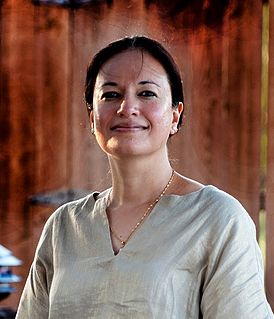A Quote by Shinzo Abe
It has been more than 60 years since the constitution was put in place. There are provisions in the constitution that no longer suit the times. Since the constitution was promulgated, we've seen the emergence of new values, such as privacy, the environment and so on, which need to be incorporated.
Related Quotes
I used to say that the Constitution is not a living document. It's dead, dead, dead. But I've gotten better. I no longer say that. The truth is that the Constitution is not one that morphs. It's an enduring Constitution, not a changing Constitution. That is what I've meant when I've said that the Constitution is dead.
When a judge goes beyond [his proper function] and reads entirely new values into the Constitution, values the framers and ratifiers did not put there, he deprives the people of their liberty. That liberty, which the Constitution clearly envisions, is the liberty of the people to set their own social agenda through the process of democracy.
In explaining the Constitution, James Madison, the acknowledged father of the Constitution, wrote in Federalist Paper 45: 'The powers delegated by the proposed Constitution to the Federal government are few and defined. Those which are to remain in the State governments are numerous and indefinite. The former will be exercised principally on external objects, as war, peach, negotiation, and foreign commerce.' Has the Constitution been amended to permit Congress to tax, spend and regulate as it pleases or have Americans said, 'To hell with the Constitution'?
[The Massachusetts constitution] resembles the federal Constitution of 1787 more closely than any of the other revolutionary state constitutions. It was also drawn up by a special convention, and it provided for popular ratification - practices that were followed by the drafters of the federal Constitution of 1787 and subsequent state constitution-makers.
The Constitution of India seeks to guarantee respect for the rule of law, the independence of the judiciary, and the integrity of the electoral process. But time and again, provisions of the Constitution of India have been flagrantly violated in Kashmir, and the ideals that it enshrines have been forgotten.
The laws are, and ought to be, relative to the constitution, and not the constitution to the laws. A constitution is the organization of offices in a state, and determines what is to be the governing body, and what is the end of each community. But laws are not to be confounded with the principles of the constitution; they are the rules according to which the magistrates should administer the state, and proceed against offenders.










































